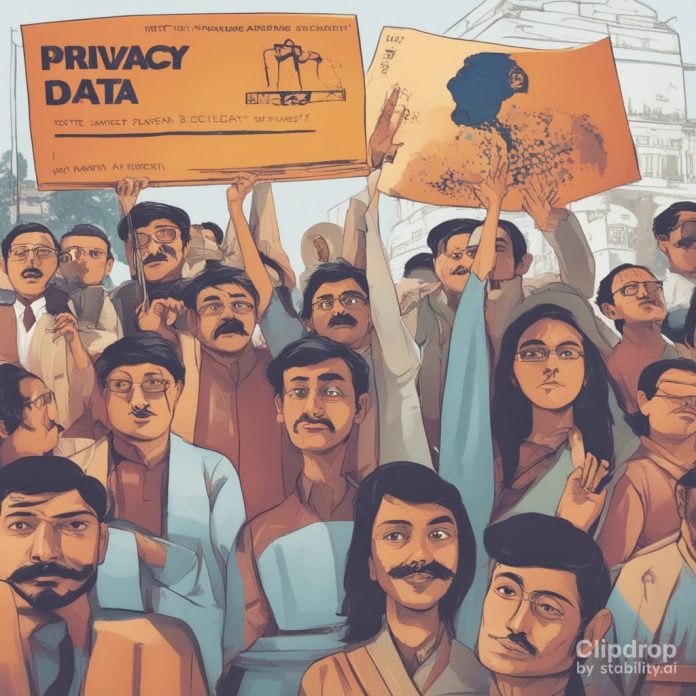In the modern age of politics, where information flows freely through digital channels, the art of campaigning has undergone a profound transformation. Gone are the days when door-to-door canvassing and town hall meetings were the primary means of reaching voters. Today, political campaigns rely heavily on digital tools and social media platforms to connect with constituents and convey their messages. While this digital shift has opened up exciting possibilities for engaging with the electorate, it has also raised important concerns about data privacy and security.
In this blog post, we will explore the challenges and opportunities of campaigning in the digital age, with a specific focus on safeguarding data privacy and security.
The Digital Campaign Landscape
The digital revolution has given rise to a plethora of tools and platforms that political campaigns can leverage to their advantage. Social media platforms like Facebook, Twitter, and Instagram offer unprecedented reach and targeting capabilities. Campaign websites, email marketing, and online fundraising platforms have made it easier than ever to connect with supporters and raise funds. Data analytics and voter profiling allow campaigns to better understand their audience and tailor their messages accordingly.
However, this digital landscape is not without its pitfalls. The massive amount of data generated and collected during digital campaigns can be a double-edged sword. While it provides valuable insights into voter preferences and behavior, it also poses significant risks to data privacy and security.
Data Privacy Concerns
One of the primary concerns in digital campaigning is the collection and use of personal data. Campaigns gather information about voters from a variety of sources, including social media profiles, campaign websites, and third-party data providers. This data can include names, addresses, email addresses, and even more sensitive information like political preferences and voting history.
The misuse of this data can have serious consequences. In recent years, there have been high-profile data breaches and incidents where personal information was mishandled, leading to public outrage and legal consequences. Protecting the privacy of voters is not only an ethical imperative but also a legal requirement in many jurisdictions.
Security Challenges
In addition to privacy concerns, digital campaigns must also contend with security challenges. Cyberattacks, such as hacking attempts and phishing attacks, can compromise campaign websites, email accounts, and fundraising platforms. Malicious actors may seek to disrupt campaign operations, steal sensitive data, or spread disinformation.
Ensuring the security of campaign infrastructure and communication channels is essential. This involves implementing robust cybersecurity measures, training campaign staff on security best practices, and staying vigilant for emerging threats.
Safeguarding Data Privacy and Security
So, how can political campaigns effectively safeguard data privacy and security in the digital age? Here are some key strategies:
- Transparency: Campaigns should be transparent about how they collect, use, and protect voter data. Clear privacy policies should be posted on campaign websites, and voters should have the option to opt out of data collection.
- Data Encryption: All data, especially sensitive information, should be encrypted to protect it from unauthorized access. This includes using secure communication channels and encrypting stored data.
- Regular Audits: Campaigns should conduct regular security audits and assessments to identify vulnerabilities and weaknesses in their digital infrastructure. Promptly addressing any issues that arise is crucial.
- Employee Training: Campaign staff should be educated on cybersecurity best practices, including recognizing phishing attempts and using strong passwords. Security awareness training can help prevent data breaches.
- Third-party Vendors: Campaigns often rely on third-party vendors for various services. It’s essential to vet these vendors for their data security practices and ensure they comply with relevant regulations.
- Legal Compliance: Campaigns must adhere to data privacy laws and regulations, such as the General Data Protection Regulation (GDPR) in Europe and the California Consumer Privacy Act (CCPA). Failure to comply can result in significant fines.
- Incident Response Plan: Having a well-defined incident response plan in place is critical. This plan should outline how the campaign will respond to data breaches or cybersecurity incidents, including notifying affected individuals and authorities.
Conclusion
Campaigning in the digital age offers numerous advantages in terms of outreach and engagement, but it also presents significant challenges when it comes to data privacy and security. Political campaigns must prioritize safeguarding voter data and maintaining the integrity of their digital operations. By implementing robust privacy practices, cybersecurity measures, and transparency, campaigns can navigate the digital landscape responsibly and maintain the trust of the electorate. In this way, they can harness the power of the digital age while respecting the privacy and security of the individuals they seek to represent.

